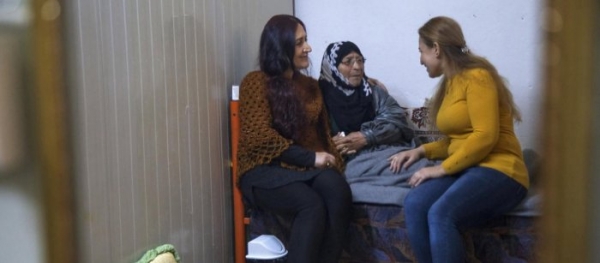United Nations High Commissioner for Refugees (UNCHR), Filippo Grandi, has declared in a statement released in June that “support and intimate knowledge of mental distress facing refugees in camps are needed now more than ever.”
Since the onset of the COVID-19 pandemic, UNHCR has been receiving concerning reports of a surge in mental health issues among refugees and forcibly displaced people in Akre and eight other camps across the Kurdistan Region of Iraq. There have been elevated levels of anxiety and depression reported within the camps, mainly stemming from fears of the virus itself and loss of income resulting from strict curfew measures.
The United Nations Mental Health and Psychological Support unit (MHPSS) usually provides psychiatric support and counselling within these camps. However, as they currently have little or no access to the camps, community workers, many of whom are refugees themselves, are holding impromptu metal wellness sessions and psychological first aid for those that need it the most in the camps.
Most of these community workers have been previously trained in a psychological intervention developed by the World Health Organization (WHO) in 2018 called Problem Management+ (PM+). The community workers continue to conduct one-on-one counselling while sourcing and putting on special Personal Protective Equipment (PPE) as instructed by the UN Division of Healthcare Management and Occupational Safety and Health.
When interviewing community workers in the camps, UNHCR found that this is the only local initiative that they know of that is dealing with the consequences of civilians’ mental health as a result of the pandemic, rather the country’s public health and economic consequences.
Furthermore, UNHCR is working with a radio station based in the Domiz 1 camp to broadcast mental health tips and taking calls from listeners every Wednesday with the help of a clinical psychologist from UNHCR. The broadcasting reaches the camp residents, displaced people, and other local communities in the area.
To know more, please read:
https://www.un.org/sites/un2.un.org/files/coronavirus_comms_ppehcw.pdf
Author: Catherine Gregoire; Editor: Sara Gorelli







